
I'm obsessed with Liu Ye's gorgeous, photorealistic paintings of books.
The artist Liu Ye is probably most famous for his lovable creation Miffy, or possibly for his paintings inspired by Piet Mondrian, but I’ve recently discovered something I like even better: Ye’s Book Painting series, which is full of meticulous, almost photorealistic paintings of books, each one typically filling the entire canvas. The book is often brightly colored, or inverted. The prevailing interest is in book as finely detailed, inherently meaningful object—not entirely surprising for someone who grew up as the child of a writer, in a house full of banned books. “Begun in 2013, this body of work depicts close-up views of books, a strategy that Liu uses to emphasize the object’s formal qualities while also invoking an atmosphere of meditation,” wrote the curators at David Zwirner, where Ye had a solo show in late 2020. “Intimately scaled, these paintings are manifestations of Liu’s appreciation of the book as an object, as well as his love of history and literature—his father was a children’s book author who introduced him to Western writers at a young age, fueling his curiosity and imagination. Liu creates the works through a slow and meticulous process in which he builds layer upon layer of paint, resulting in glaze-like surfaces that call to mind the richness and detail of Early Netherlandish painting mixed with the conceptual and structural rigor of his modernist forebears.”
“Suppose that a certain person looks at the cover of a book, resting his gaze on it for years. He does not open it,” writes Zhu Zhu in “Reading at the Limit,” an essay included in a book published alongside the exhibition. “Later he gives in and turns the cover himself, but only as far as page one. Suppose that years pass before more of the pages are finally turned, and that this whole process takes up twenty-five years of his days and nights. All of this actually happened in the case of Liu Ye. Of course, it happened in his painting: a protracted, slow-motion process employing the mastery patiently acquired by effort or luck, and then gravitating toward a weightless state: the weightlessness of the system of images, the weightlessness of the system of language.”
Here are a few of my favorites:
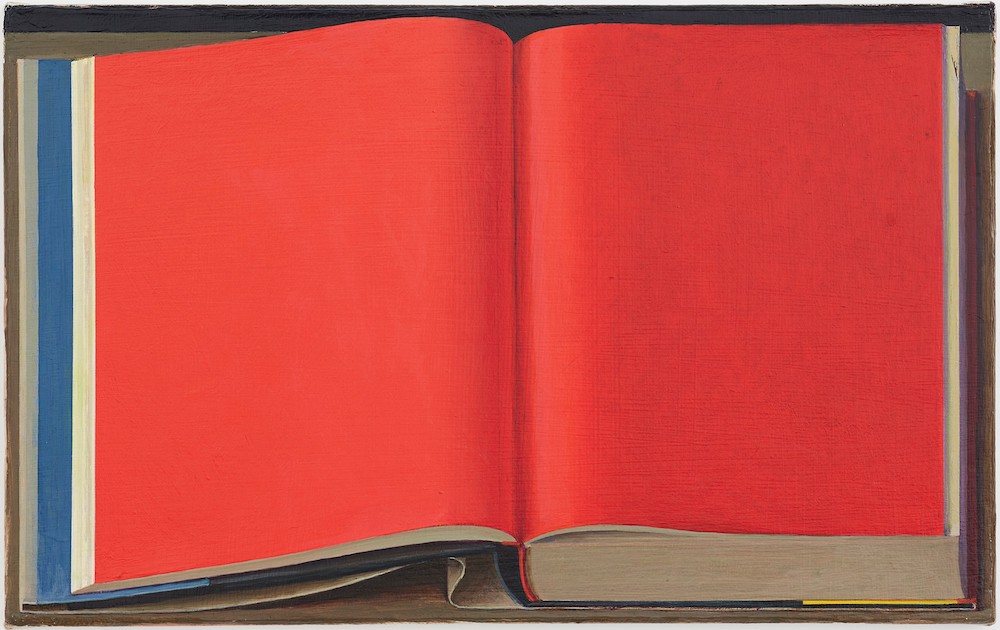 Liu Ye, Book Painting No. 6, 2014-2015
Liu Ye, Book Painting No. 6, 2014-2015
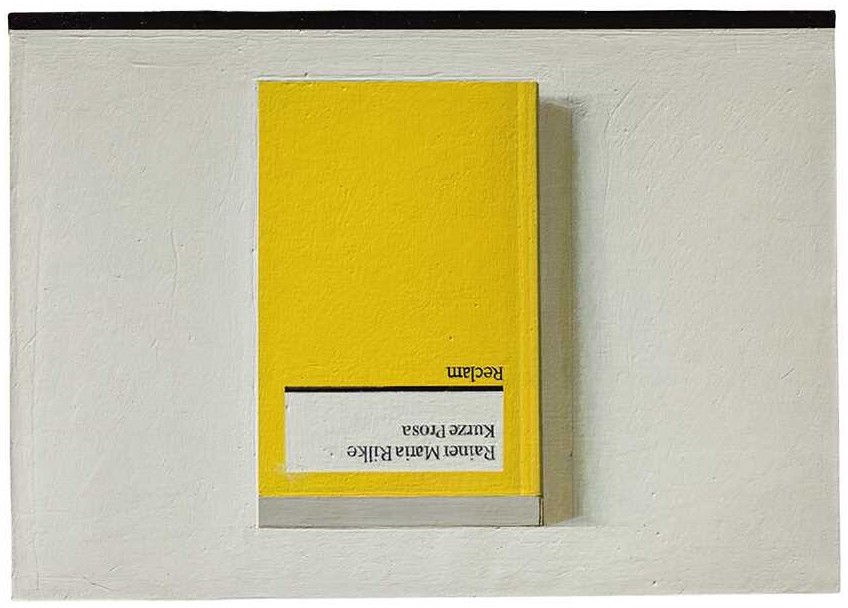 Liu Ye, Book Painting No. 9 (Rainer Maria Rilke, Kurze Prosa, Reclam, 2012), 2015
Liu Ye, Book Painting No. 9 (Rainer Maria Rilke, Kurze Prosa, Reclam, 2012), 2015
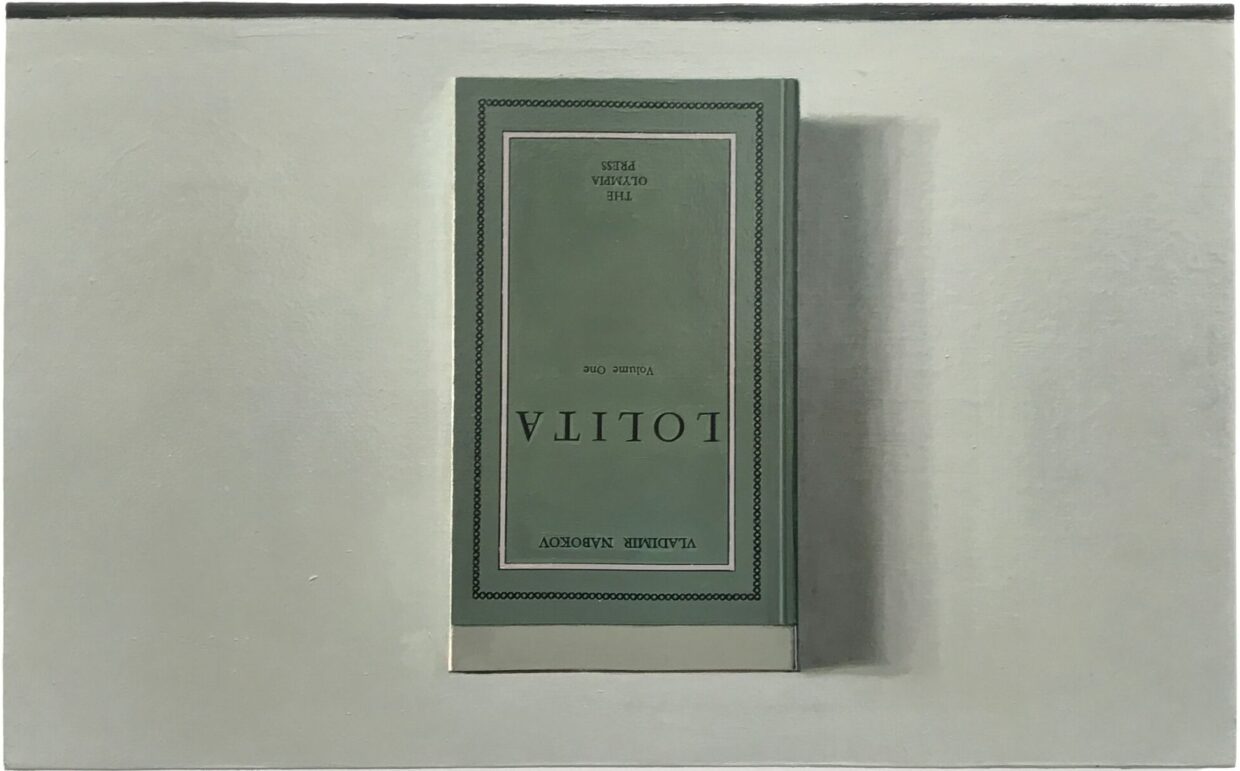 Book Painting No. 13 (Lolita), 2015
Book Painting No. 13 (Lolita), 2015
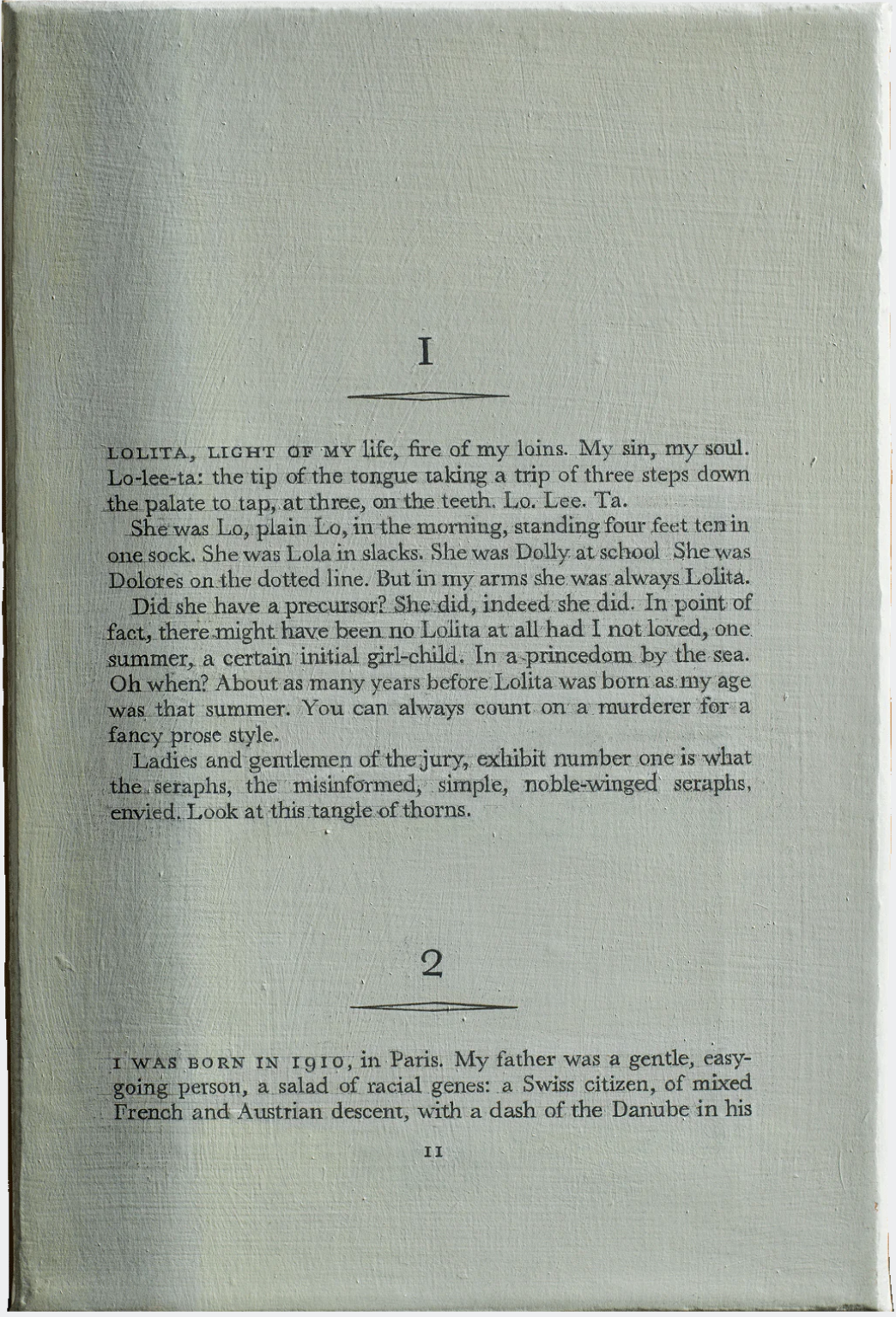 Liu Ye, Book Painting No. 15 (Lolita, The Olympia Press, 1955, Page 13), 2017
Liu Ye, Book Painting No. 15 (Lolita, The Olympia Press, 1955, Page 13), 2017
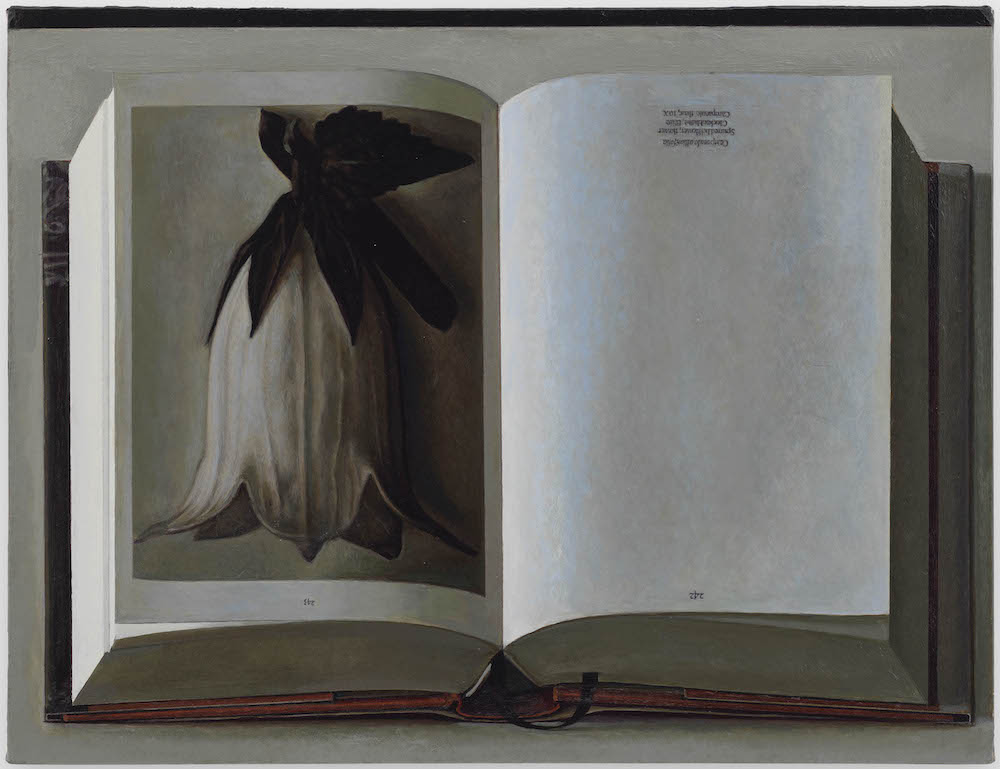 Liu Ye, Book Painting No. 21 (Karl Blossfeldt, The Complete Published Work, Taschen GMBH, 2017), 2018
Liu Ye, Book Painting No. 21 (Karl Blossfeldt, The Complete Published Work, Taschen GMBH, 2017), 2018
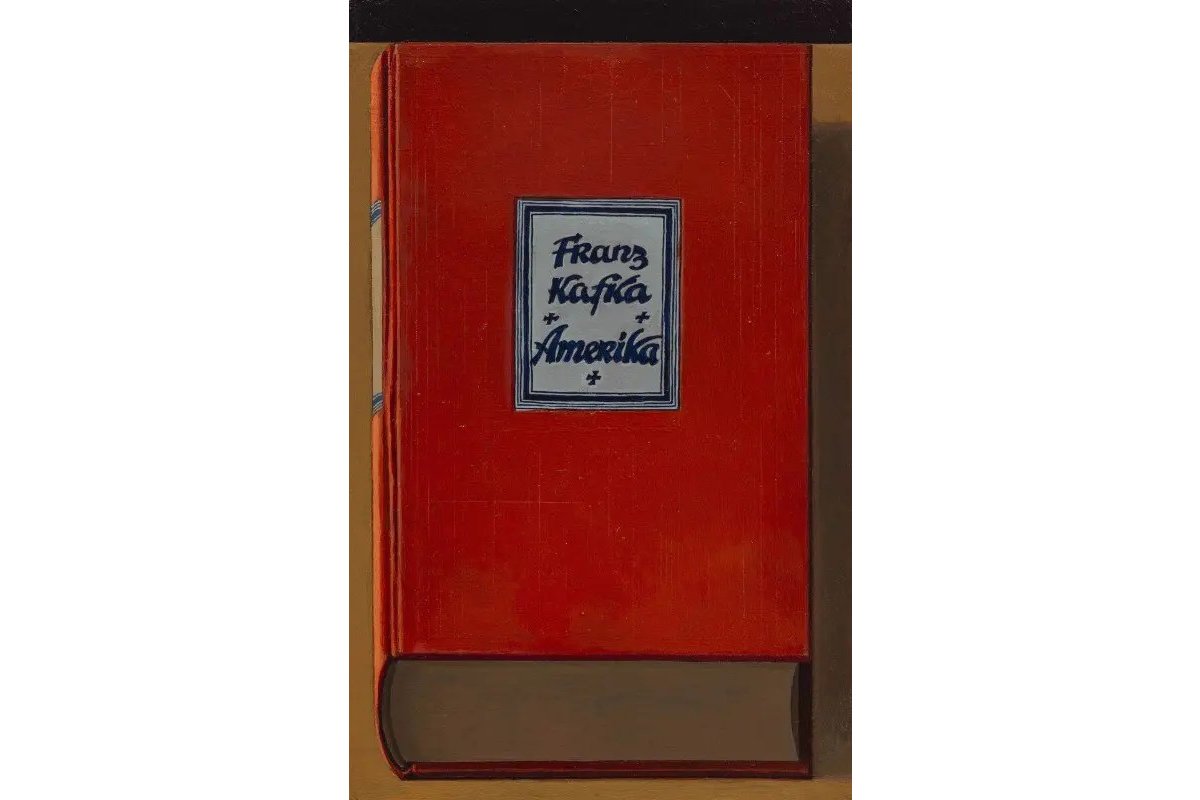 Liu Ye, Book Painting No. 27 (Franz Kafka, Amerika, Kurt Wolff Verlag, Muenchen, 1927), 2019
Liu Ye, Book Painting No. 27 (Franz Kafka, Amerika, Kurt Wolff Verlag, Muenchen, 1927), 2019
Emily Temple
Emily Temple is the managing editor at Lit Hub. Her first novel, The Lightness, was published by William Morrow/HarperCollins in June 2020. You can buy it here.



















